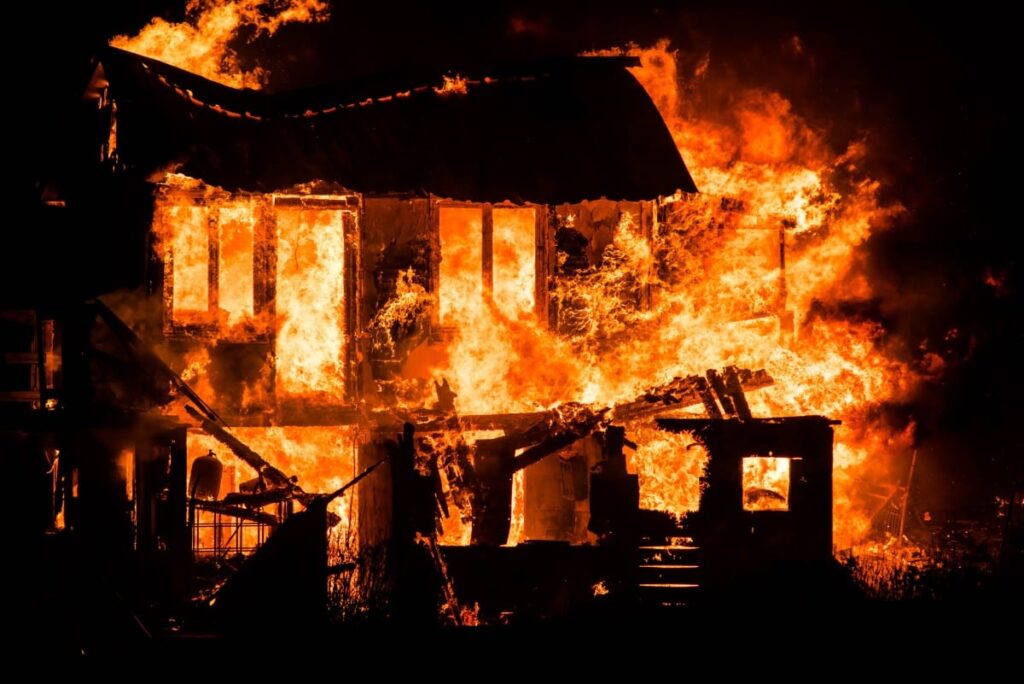When it comes to building a structure that will stand the test of time and provide ultimate protection, fire resistance is a top priority for both residential and commercial properties. In today’s world, where fire hazards are an ongoing concern, more builders are turning to Insulated Concrete Forms (ICF) walls for their superior fire-resistant properties. ICF walls combine the strength of concrete with the insulating benefits of foam, creating a structure that is not only durable and energy-efficient but also incredibly fire-resistant.
What Are ICF Walls?
Before diving into the fire-resistant properties, it’s important to understand what ICF walls are. Insulated Concrete Forms (ICF) are interlocking blocks or panels made of expanded polystyrene (EPS) foam. These forms are filled with reinforced concrete to create a solid and durable wall system. The result is a highly energy-efficient, soundproof, and fire-resistant wall construction method.
ICF walls are increasingly popular in modern building projects due to their ability to combine the strength of concrete with the insulating properties of foam. This unique combination makes them a popular choice for a wide range of construction applications, from single-family homes to large commercial buildings, especially in areas that are prone to wildfires or other fire risks.
Fire-Resistant Concrete Cores
One of the most significant benefits of ICF walls is the concrete core, which provides natural fire resistance. Concrete is a non-combustible material, meaning it does not catch fire or contribute to the spread of flames. When used in ICF walls, the dense concrete core offers excellent protection against both direct flames and intense heat.
The concrete used in ICF walls has impressive fire resistance ratings, often up to four hours. This means that in the event of a fire, ICF walls can slow the spread of flames, giving occupants valuable time to evacuate the building or for firefighters to contain the blaze. The dense concrete also helps protect structural elements such as steel beams and wooden framing, preventing them from weakening or failing in the heat of a fire.
Because ICF walls are highly resistant to fire, they can be an excellent choice for areas where fire safety is a primary concern. Whether you’re building in a wildfire-prone region or simply want to ensure that your building is as fireproof as possible, ICF walls offer a robust solution to help protect both the structure and its inhabitants.
Fire-Resistant Insulation for Added Protection
Another essential component of ICF walls that enhances fire resistance is the foam insulation used within the forms. The foam insulation in ICF walls is typically made from expanded polystyrene (EPS), which is treated with fire-retardant additives to prevent ignition. These additives ensure that the foam will not catch fire when exposed to high temperatures, further improving the overall fire resistance of the wall system.
In addition to preventing ignition, fire-resistant foam insulation limits the production of smoke and toxic gases. When a fire occurs, one of the biggest dangers to building occupants is not just the flames, but also the smoke and harmful gases produced by burning materials. Many common building materials release toxic fumes when they burn, which can significantly increase the risks associated with a fire.
In contrast, the foam insulation in ICF walls is designed to burn more slowly and produce less smoke and fewer toxic gases than traditional insulation materials. This means that ICF walls help to create a safer environment in the event of a fire, allowing for better air quality and reducing the potential for harmful exposure to dangerous fumes.
Enhanced Safety and Protection
The combination of concrete and fire-resistant insulation in ICF walls provides a level of safety and protection that few other building materials can match. When a fire occurs, time is critical. The faster the fire spreads, the greater the potential for damage, injury, or loss of life. ICF walls slow the spread of fire, offering increased safety for building occupants and providing more time for evacuation.
In addition to slowing fire spread, ICF walls offer superior protection against heat. The dense concrete core acts as a heat barrier, helping to prevent the transfer of heat through the walls. This means that even if a fire occurs on one side of the wall, the interior of the building will remain cooler for longer, minimizing the risk of injury to occupants and reducing the potential for the fire to spread to other areas.
ICF walls also provide enhanced protection for the building’s structural integrity. In many traditional building materials, the heat from a fire can cause the structure to weaken or even collapse. With ICF walls, however, the combination of concrete and fire-resistant foam helps maintain the strength and stability of the building, ensuring that the structure remains intact for longer periods during a fire emergency.
Ideal for Fire-Prone Environments
ICF walls are particularly beneficial in areas that are prone to wildfires or other fire hazards. Whether you’re building in a region with a high risk of wildfires or simply want to take extra precautions, ICF walls provide a level of protection that can significantly reduce the damage caused by fires.
In addition to offering superior fire resistance, ICF walls also provide better insulation and soundproofing compared to traditional wall systems. This makes them ideal for homes and buildings located in areas where noise pollution and extreme weather conditions are also concerns. With their energy-efficient properties and high level of durability, ICF walls are a versatile option for construction in challenging environments.
Long-Term Peace of Mind
Building with ICF walls is not only about providing immediate fire protection but also about offering long-term peace of mind. When you choose ICF walls for your construction project, you are investing in a building that will stand the test of time and offer superior protection against fire hazards for years to come.
The durability and strength of ICF walls are unmatched. These walls are resistant to weathering, pests, and even mold, making them an ideal choice for buildings in a variety of climates and environments. Furthermore, the fire resistance of ICF walls doesn’t diminish over time, meaning that your building will continue to benefit from the same high level of protection throughout its lifespan.
For homeowners, business owners, and institutions, this means peace of mind knowing that their property is built with one of the safest, most fire-resistant materials available. The safety of your family, employees, and customers is worth every investment, and ICF walls provide that peace of mind knowing your building is as secure as possible.
The Batten Builders Advantage
At Batten Builders, we specialize in high-quality construction that prioritizes safety, durability, and long-term value. Our expertise in ICF wall construction allows us to deliver buildings that offer superior fire resistance, exceptional energy efficiency, and unparalleled structural integrity. We understand the importance of protecting your home or business, which is why we choose ICF walls as one of our preferred building methods.
Whether you’re looking to build a residential property, commercial facility, or institutional building, we’re here to guide you through every step of the process. From design to construction, Batten Builders will ensure that your project meets the highest safety standards while providing the long-term benefits of ICF construction.





